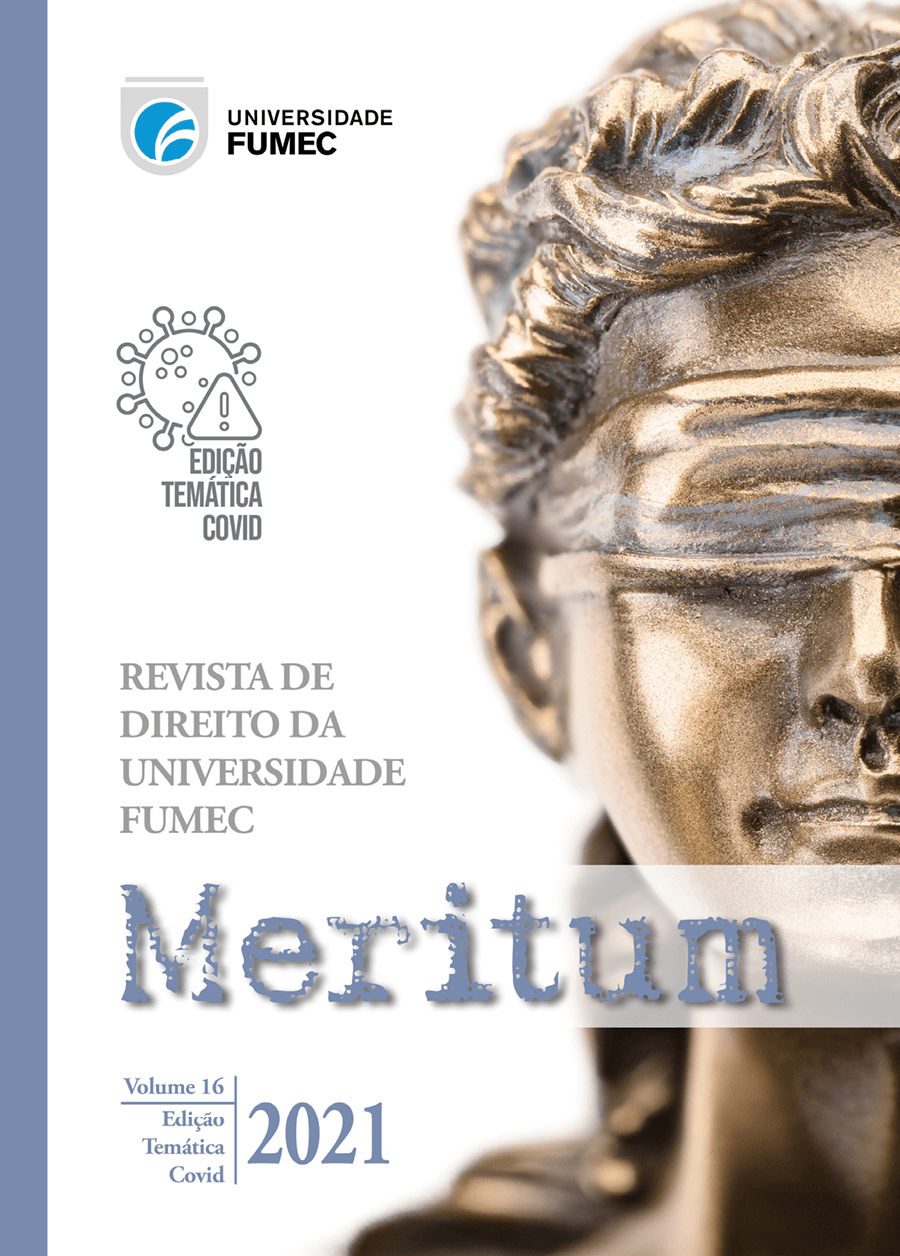THE refuge mechanism in times of pandemic in Brazil
DOI:
https://doi.org/10.46560/meritum.v16i4.8568Abstract
Migrations can be spontaneous, following the individual's will, or or forced for circumstantial reasons, such as economic crises, environmental disasters, or armed conflicts. In the case of forced migrations, life has become severely distressing and inconvenient, and migration presents itself as an option to ensure one's physical integrity - a case in which the migrants might be classified as refugees. The advent and worldwide spreading of the Covid-19 impacted both kinds of migration since 2020, leading countries to close their borders to the "non-nationals". This issue is of current interest, as it directly impacts the relationship between the people's demands and the government response capacity. In this context, the article attempted to analyze the Brazilian government's responses regarding public policy in connection to the migration issue during the pandemic, especially regarding the refugees. The research employed deductive method and bibliographical technics, and the main findings indicate that closing borders can be seen as a non-refoulment principle's violation.
Downloads
Published
Issue
Section
License
Autores que publicam nesta revista concordam com os seguintes termos:
- Autores mantém os direitos autorais e concedem à revista o direito de primeira publicação, com o trabalho simultaneamente licenciado sob a Licença Creative Commons Attribution que permite o compartilhamento do trabalho com reconhecimento da autoria e publicação inicial nesta revista;
- Autores têm autorização para assumir contratos adicionais separadamente, para distribuição não-exclusiva da versão do trabalho publicada nesta revista (ex.: publicar em repositório institucional ou como capítulo de livro), com reconhecimento de autoria e publicação inicial nesta revista;
- Autores têm permissão e são estimulados a publicar e distribuir seu trabalho online (ex.: em repositórios institucionais ou na sua página pessoal) a qualquer ponto antes ou durante o processo editorial, já que isso pode gerar alterações produtivas, bem como aumentar o impacto e a citação do trabalho publicado (Veja O Efeito do Acesso Livre).






